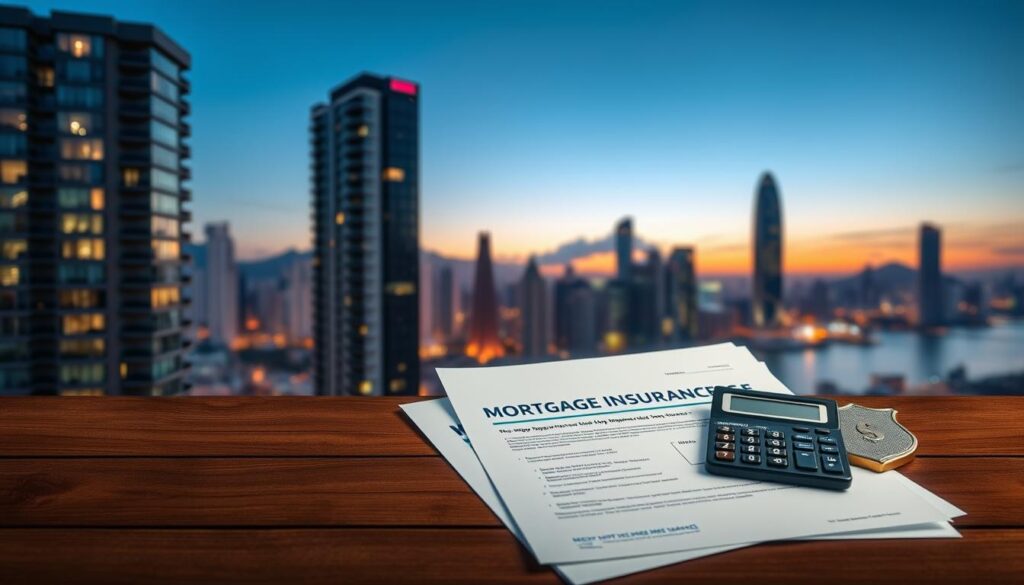Hong Kong’s bustling real estate market offers a unique investment opportunity, even for foreigners. The process, although straightforward, has its nuances, including mortgage pre-assessment, legal documentation, and stamp duty considerations. Notably, foreign ownership of property in Hong Kong continues to attract interest due to the potential for high returns despite market volatility.
With property prices in Hong Kong having hit their lowest point since November 20171, many expats and locals alike are looking to invest in real estate. For those unfamiliar with the market, platforms like
Pacific Prime Hong Kong
provide comprehensive assistance, from securing property to understanding insurance needs.
It’s important to note that foreigners can buy non-residential properties without prior approval, but for residential properties, approval from the Hong Kong government is necessary1. Additionally, the average home price of over $1.2 million emphasizes the financial commitment required for real estate investment in Hong Kong2.
Despite the high costs, the relatively lower percentage of properties bought by foreigners compared to locals doesn’t diminish the significant role foreign investment plays in driving property prices and market trends1. Various taxes, including the 15% Buyers’ Stamp Duty and solicitor’s fees, add to the initial costs2.
Key Takeaways: How to Buy a Property in Hong Kong
- Foreign ownership of property in Hong Kong is possible but subject to regulations.
- Approval is required for purchasing residential properties.
- Despite the high costs, the market offers robust investment opportunities.
- Various costs, including stamp duties and solicitor’s fees, must be considered.
- Pacific Prime Hong Kong provides essential services for navigating the real estate market.
Contact us if you are Interested in Buying Property Abroad!
An Overview of Hong Kong’s Real Estate Market
Hong Kong’s real estate market has long been one of the most expensive in the world, marked by its unique leasehold system and a complex landscape of market fluctuations. Buying property in Hong Kong as a foreigner involves navigating high property prices and understanding the key factors influencing these prices. The market has seen home values decline for three consecutive years, reflecting broader economic uncertainties and global trends3.
The State of the Market
The real estate market in Hong Kong has experienced significant changes recently. Property prices have dropped, with current values exceeding US$20,000 per square meter, potentially making it the most expensive in Asia3. Market fluctuations in Hong Kong real estate are influenced by various factors, including the US-China trade war, which has led to weakened business confidence and a reduced international reputation3. Moreover, rental yields in Hong Kong are below 3%, and the unemployment rate stands at around 3.3%4.
Key Factors Influencing Property Prices
Several key factors impact property prices in Hong Kong. Economic indicators, such as the local stock market performance, can have a profound effect on investment opportunities in real estate4. The government’s policies and regulations also play a crucial role, with strategies such as the 7.5% stamp duty on second property purchases4. Global market trends, including the fluctuating demand from mainland Chinese buyers and foreign investors, further influence property valuations3. Additionally, Hong Kong’s limited land supply drives high demand for real estate, making it a competitive market for buyers4.
With these detailed insights, investors can make informed decisions about buying property in Hong Kong as a foreigner. For more information on property investment trends, click here3.
Hong Kong Property Ownership Rules
Hong Kong property ownership rules are quite unique, primarily because all land is technically owned by the government and leased to individuals or corporate entities. These leases can vary significantly in terms of duration, with those in the New Territories commonly extended up to 2047. Foreigners, including non-resident property ownership in Hong Kong, can invest in land, though there are restrictions aimed at promoting affordable housing for locals5.
To manage this system, Hong Kong employs a detailed registration model for land instruments, wherein earlier registrations take precedence over those made later. Under this system, property owners, including foreign investors, often utilize holding structures to streamline property management and ownership5. The Residential Properties (First-hand Sales) Ordinance, enacted in April 2013, governs numerous aspects of property sales like brochures, price lists, and show flats to standardize the market5.
Violations of these ordinances come with severe penalties, including fines up to HKD 5 million and prison sentences of up to seven years. This strict legal framework ensures that any non-resident property ownership in Hong Kong adheres to established guidelines designed to protect both the market and the investors5. Furthermore, there are regulatory schemes, such as the Consent Scheme and Non-Consent Scheme, particularly for off-the-plan sales to safeguard buyers from potential defaults by developers5.
A notable regulatory change includes the imposition of an additional 15% Buyer’s Stamp Duty on foreign property sales to curb market speculation6. Despite these measures, property prices in Hong Kong remain among the highest globally, which necessitates a minimum deposit of at least 40% for properties under HK$7 million6.
Non-resident property ownership in Hong Kong also involves other tax implications. For instance, non-permanent residents are subject to a 15% Buyer Stamp Duty in addition to the standard ad valorem duty, which is based on the property’s transaction value6. Property tax on rental income is another aspect that investors need to consider, along with the Special Stamp Duty that applies if a property is sold within 36 months of a previous transaction7.
Real estate ownership in Hong Kong is certified through title deeds and a deeds registration system managed by the Land Registry, making ownership records publicly accessible. This level of transparency adds a layer of security and trust to the Hong Kong property market, benefiting both local and foreign investors7.
Can Foreigners buy Real Estate in Hong Kong?

When it comes to foreigner eligibility to purchase property in Hong Kong, the city stands out as an accessible market. Foreigners are indeed allowed to buy property, which includes residential and non-residential real estate, without much hassle. Despite the higher property prices in Hong Kong, foreigners enjoy virtually the same benefits and rights as local residents when it comes to property ownership8.
However, understanding the regulations for foreigners buying property in Hong Kong is crucial due to the extra costs involved, including Stamp Duty and other related expenses. High end Hong Kong apartments can cost around USD 28,570 per square meter, markedly higher in comparison to major international metro areas9. Taking the right steps can simplify the buying process, ensuring compliance with local laws10.
Moreover, given that Hong Kong’s property prices have shown a slight decline since 2020, this could be viewed as an opportunity for foreign buyers8. Here’s a deeper dive into the eligibility requirements and the additional costs that one should expect when navigating Hong Kong’s property market.
Eligibility Requirements
There are no specific restrictions on foreigner eligibility to purchase property in Hong Kong. Foreigners, much like local residents, are eligible to own properties and apply for mortgages from local banks. In usual circumstances, banks can lend up to 70% of the property value, offering viable financing options for expatriates8. It is important to note that the typical down payment for mortgages ranges between 40-50% of the property value9.
Stamp Duty and Additional Costs
One of the significant regulations for foreigners buying property in Hong Kong is the requirement to pay Stamp Duty. A Buyer’s Stamp Duty of 15% is charged on all properties purchased by non-permanent residents and foreign buyers. This is an additional cost atop the property price, which must be factored into the budget8. Furthermore, both buyers and sellers typically bear the costs of using real estate agents during the transaction, and these fees are subject to negotiation10.
Besides Stamp Duty, other costs include legal fees for solicitors, whose roles are indispensable in ensuring all agreements are legally sound. Deed registration is mandatory, which entails additional fees that need to be considered. Lastly, investing in insurance is recommended to safeguard property investments, and companies like Pacific Prime offer tailored solutions to meet these needs.
To conclude, while Hong Kong indeed allows foreigners to buy property with relatively few restrictions, a thorough understanding of the financial obligations and regulatory requirements is essential. Detailed information and guidance can be found on platforms like ExpatInfodesk8, which provides a comprehensive overview of the purchasing process.
Contact us if you are Interested in Buying Property Abroad!
The Process of Buying Property in Hong Kong

Embarking on the journey of buying property in Hong Kong involves a well-structured process, from initial mortgage assessments to finalizing the legal and financial details. Understanding these crucial steps will help in navigating the complexities of the real estate market efficiently, ensuring a smooth and successful transaction.
Initial Steps: Mortgage Pre-Assessment and Budgeting
Securing property in Hong Kong starts with a thorough mortgage pre-assessment. Prospective buyers should assess their borrowing capacity using tools provided by institutions like the Hong Kong Mortgage Corporation Limited. This step helps in determining the mortgage insurance in Hong Kong that might be needed for the purchase. Buyers typically need to prepare an initial deposit of 5%, followed by a further deposit of 5%, and the balance of 90% before the transaction is completed11. It’s vital to include stamp duty in the budget, which can vary depending on the buyer’s residency status and the property’s value11.
House Hunting and Preliminary Agreements
Once the financials are understood, the next step is house hunting. Engage with real estate agents to explore various properties and neighborhoods. Note that a standard agency fee is 1% of the sales price11. Upon finding a suitable property, the buyer and seller enter into a Provisional Agreement for Sale and Purchase (PASP), which is a preliminary agreement that outlines the terms and conditions of the sale. This phase also involves negotiating the price and scheduling property inspections to ensure the property’s condition.
Finalizing the Purchase: Legal and Financial Procedures
Finalizing the purchase involves meticulous legal and financial processes. Buyers must secure mortgage insurance in Hong Kong if they are financing their purchase through a loan. The legal procedures include the official Agreement for Sale and Purchase (ASP), which is a legally binding contract. Payments such as stamp duties—Original Ad Valorem Stamp Duty (AVSD)—and associated legal fees (approximately 0.1% of the sales price) must also be settled11. Ensuring all documents are in order and comprehending recurring costs, such as management fees and government rates, is crucial in the final stages of securing property in Hong Kong11.
Benefits of Buying Property in Hong Kong as a Foreigner

Investing in the Hong Kong real estate market offers several advantages for foreigners. One major benefit is the reduced stamp duty rates. The Stamp Duty for Non-Hong Kong Permanent Residents has been decreased from 30% to 15%, making it more attractive for international investors12.
Another advantage lies in the city’s illustrious international business environment. Hong Kong’s legal system, which is based on English law, provides a stable and transparent framework for property ownership13. Additionally, all real estate in Hong Kong is held under leasehold title, ensuring long-term security for investors13.
When it comes to rental yields, owning a property in Hong Kong can be exceptionally rewarding. Renting out a property can fetch a minimum of HK$100,000 per year13, creating a reliable stream of income for property owners. The city’s high rental demand is driven by its robust economic activities and influx of expatriates, adding to the advantages of real estate investment in Hong Kong.
Moreover, the reduced stamp duties on stock trading, now at 0.1% of the trade value, also boost the profitability of investing in property-holding companies12. This makes real estate investment not just about owning property, but also about enhancing one’s business activities.
The value of property in Hong Kong continues to rise, with prices now exceeding $3500 per square foot13. This consistent appreciation highlights the city’s resilient real estate market, making it an attractive investment destination. Furthermore, even properties in less vibrant areas command high values, surpassing two million Hong Kong dollars13. This capital appreciation is a significant advantage of real estate investment in Hong Kong.
Lastly, the Stamp Duty suspension scheme for overseas talents allows Non-Hong Kong Permanent Residents to save approximately 10.75% of the original stamp duty payable12. These financial incentives not only reduce the initial costs but also enhance the overall returns on investment.
Given these benefits and the advantages of real estate investment in Hong Kong, it’s clear why the city remains a top choice for international investors. For detailed information, consider exploring resources available on the topic here.
Common Pitfalls to Avoid

Foreign buyers interested in Hong Kong real estate must navigate a series of challenges, including legal restrictions, financial planning, and staying aware of market fluctuations. Understanding these pitfalls can help make the buying process smoother and more transparent.
Legal Restrictions
Legal considerations for foreign property buyers in Hong Kong include navigating complex laws surrounding property ownership. Stamp duty for transfers of shares in Hong Kong companies is set at 0.2% of the value or the purchase price, with a fixed duty of HKD 5. Parties may agree on a different basis where both buyer and seller each pay 0.1%14.
Financial Considerations
Financial planning for Hong Kong real estate involves significant calculations. Gains on the disposal of a capital asset in Hong Kong are exempt from profits tax, providing a potential advantage for investors14. It’s essential to consider the implications of the refined FSIE regime, effective January 2024, which will include foreign-sourced gains from disposing of any asset in Hong Kong’s taxable income unless exclusions apply14. Furthermore, strategies like leasehold versus freehold ownership are crucial for foreign buyers15.
Market Fluctuations
Market fluctuations present a considerable risk in property investment. Between 2010 and 2021, Chinese buyers consistently purchased about $18 billion worth of US homes annually, showing their substantial demand for international real estate15. However, travel restrictions due to Covid-19 resulted in a decrease, highlighting how external factors can impact the market15. Thus, foreign buyers must account for potential volatility in their financial planning for Hong Kong real estate.
Real Estate Investment Opportunities in Hong Kong

Hong Kong presents a dynamic landscape for real estate investors, offering both high-yield opportunities and potential for significant long-term property appreciation. High-yield real estate investments in Hong Kong are particularly attractive due to the city’s unique positioning and market dynamics.
Contact us if you are Interested in Buying Property Abroad!
High-Yield Investments
The city’s real estate market is known for its lucrative returns, driven by a low-interest-rate environment and currency stability. Investment requirements under the New Capital Investment Entrant Scheme (New CIES) are slated to be not less than HK$30 million net in Permissible Investment Assets after 1 March 2024, creating a high entry barrier but promising substantial returns16. Moreover, property prices in high-demand areas such as Central and Wan Chai can reach up to $142,000 per square meter, underscoring the profitability of high-yield real estate investment here17.
The stringent government regulation on development has propelled the market, ensuring steady demand and limited supply18. For example, only about 25% of the land in Hong Kong has been developed, with the rest being mountainous or reserved for parks and nature reserves18. This limited supply enhances the potential for high yields for properties that do make it onto the market.
Long-Term Property Appreciation
Hong Kong’s real estate market is structured to favor long-term property appreciation, driven by economic resilience and strategic governance. The government maintains stringent control over land development through covenants and lease conditions, safeguarding property values even in turbulent times18. Real estate prices, which had stagnated in 2013, have been experiencing a rise due to these factors18.
The consistent influx of mainland Chinese buyers serves as a hedge against potential currency depreciation, further driving property appreciation in Hong Kong18. Additionally, upscale neighborhoods such as Jardine’s Lookout and Happy Valley offer premium real estate investments with breathtaking views and high-end amenities, ensuring robust value growth over time17.
In summary, high-yield real estate investments in Hong Kong are particularly appealing due to the region’s limited land supply and rigorous regulatory framework. The combination of limited available land and strict governmental oversight enhances the long-term property appreciation potential, making Hong Kong an attractive market for investors seeking reliable and high returns18.
Regulations for Foreigners Buying Property in Hong Kong

The regulations concerning foreigners buying property in Hong Kong are an essential aspect to understand if you are an expat looking to invest. Foreigners, including expats, can legally purchase and own property in Hong Kong without many restrictions, except for a few nationalities. However, it is crucial to note the substantial difference in stamp duty compared to local residents. Foreigners are required to pay 30% of the total stamp duty, significantly higher than the 3.7% paid by permanent residents19. Additionally, foreigners face a 15% levy on property purchases20.
Property buying regulations in Hong Kong for expats also involve understanding the policies such as the ‘Hong Kong Property for Hong Kong People’ policy. This policy restricts some residential developments solely for Hong Kong residents and was implemented on two residential sites in Kai Tak, Kowloon, as of April 202321. Although this policy limits opportunities in specific areas, foreigners still have numerous other investment opportunities across the region.
Foreign buyers should be mindful of the administrative aspects such as proper registration with the Companies Registry under Part 16 of the Companies Ordinance (Cap. 622) if they are operating as a business entity21. Mortgage options are also available for expats; however, they typically cover up to 70% of the property value, with some banks extending up to 95% under certain conditions20.
Furthermore, it is crucial to be aware of the agent fees, which are typically 1% of the total house price from both the buyer and the seller, due upon completion of the transaction19. Finally, foreign buyers must pay attention to the timelines for paperwork, such as paying the stamp duty within 30 days of a property purchase agreement20. Proper comprehension of these regulations ensures a smoother transaction process and helps avoid potential legal issues when buying property in Hong Kong.
Land Ownership and Leases in Hong Kong
Land ownership in Hong Kong operates under a unique system where nearly all land is leasehold property, held by the People’s Republic of China since the change of sovereignty on 1 July 19972221. The leasehold property in Hong Kong is primarily managed through the land grant system in Hong Kong, which typically involves government leases of 50 years from the grant date2221.
Before the resumption of sovereignty in 1997, land leases in Hong Kong varied, including durations of 999 years, 99 years, and 75 years, with many having renewal rights21. Following the sovereignty shift, however, the New Territories Leases (Extension) Ordinance extended all leases expiring on 30 June 1997 to 30 June 2047 without additional premiums to lessees21. This effectively standardized lease periods and provided clarity for property owners.
The current system of the land grant system in Hong Kong involves government auctions or land exchanges to allocate land. These sales are public, ensuring transparency, and are conducted with clearly defined lease terms. Notably, real estate developments in Hong Kong are primarily multi-storey buildings due to the city’s limited land supply23. Such developments grant tenants rights, including the use of common areas and easement rights like the right of way and parking on neighboring land23.
Moreover, an interesting aspect of the leasehold property in Hong Kong involves special cases like St. John’s Cathedral, one of the few properties held in freehold tenure21. In addition, major policies, such as the “Hong Kong Property for Hong Kong People,” restrict certain residential property sales to Hong Kong permanent residents, aiming to control property prices and availability21.
Looking forward, the Hong Kong Government has aimed to further refine the land ownership framework. Although the Land Titles Ordinance of 2004 set out to shift from a deeds registration to a title registration system, it has yet to be implemented. A proposal is planned to introduce the Land Titles (Amendment) Bill by early 2024, impacting new government land grants22. This move is expected to modernize and streamline property registration in Hong Kong.
Conclusion
As we wrap up this comprehensive overview, it’s clear that the Hong Kong real estate market presents both significant opportunities and unique challenges for foreign investors. The summary of buying property in Hong Kong reveals that despite high property prices and stringent government regulations, the market boasts promising rental yields of approximately 2-3%, making it an attractive destination for international buyers seeking both rental income and capital growth24.
For those interested in purchasing property, understanding Hong Kong’s legal framework and financial considerations is crucial. Prospective buyers should be prepared for a down payment requirement of 50-60% for properties over HK$12 million, and be aware that lenders typically finance up to 40-50% of the property cost25. Effective risk management strategies, including liquidity enhancement and leverage control, are essential to navigating the high-stakes investment environment of Hong Kong’s real estate market24.
Ultimately, the final thoughts on property investment in Hong Kong underscore the importance of diligent research and professional guidance. Market trends indicate resilience and stability, supported by economic factors and government measures aimed at stimulating demand24. Engaging with established developers can also provide a safety net, thanks to their focus on quality and reliability24. Whether you’re looking at short-term gains or long-term appreciation, the Hong Kong property market remains a compelling option for savvy investors.
Contact us if you are Interested in Buying Property Abroad!
FAQ
Can foreigners buy real estate in Hong Kong?
Yes, foreigners can buy real estate in Hong Kong. There are no restrictions on foreign ownership of property in Hong Kong, making it an attractive market for international investors.
What is the current state of the Hong Kong real estate market?
The Hong Kong real estate market has seen a decline in home prices since 2020, reaching their lowest since November 2017 as of October 2022. This presents opportunities for potential buyers to enter the market at a lower cost.
What key factors influence property prices in Hong Kong?
Several factors impact property prices in Hong Kong, including economic indicators, government policies, and global market trends. Understanding these elements is essential for informed investment decisions.
What are the ownership rules in Hong Kong?
In Hong Kong, all land (except for St. John’s Cathedral) is leasehold, and the government has significant authority over land management, use, and development. Foreign buyers must navigate these regulations when purchasing property.
What are the eligibility requirements for foreigners buying property in Hong Kong?
Foreigners are eligible to own and rent out properties in Hong Kong. However, non-permanent residents face higher stamp duty costs compared to locals.
What additional costs should foreigners consider when buying property in Hong Kong?
In addition to the higher stamp duty, foreigners should factor in costs such as legal fees, assessment fees, and the services of solicitors and insurance brokers like Pacific Prime Hong Kong.
What are the initial steps in the property buying process in Hong Kong?
The initial steps include understanding your mortgage borrowing capacity, which can be facilitated by tools provided by the Hong Kong Mortgage Corporation, followed by setting a budget, and starting the house hunting process.
How do I finalize a property purchase in Hong Kong?
Finalizing a property purchase involves securing preliminary agreements, handling legal documentation, paying the required stamp duty, and completing the transaction with the help of solicitors and possibly insurance brokers.
What are the benefits of buying property in Hong Kong as a foreigner?
Benefits include potential high returns on investment, long-term property appreciation, and access to Hong Kong’s favorable international business environment.
What common pitfalls should foreign buyers avoid in Hong Kong’s real estate market?
Common pitfalls include navigating legal restrictions, understanding financial implications including mortgage insurance, and being aware of market volatility.
What real estate investment opportunities are available in Hong Kong?
Investors can look for high-yield investments and properties with long-term appreciation potential, taking advantage of trends and factors driving profitability in the market.
Are there specific regulations for foreigners buying property in Hong Kong?
Yes, regulations include higher stamp duties for non-permanent residents and specific policies like the ‘Hong Kong Property for Hong Kong People’ policy. Proper registration as a property owner is essential.
How does the land ownership and leasing system work in Hong Kong?
Hong Kong operates primarily on a leasehold basis, with the government managing land through public auctions or land exchanges. Lease terms and extensions beyond 2047 fall under government authority.
Source Links
- https://www.midland.com.hk/zh-hk/property-news/名家專欄/13-reasons-to-buy-property-in-hong-kong/
- https://www.paulhypepage.com.hk/owning-a-home-in-hong-kong/
- https://www.investasian.com/property-investment/hong-kong-real-estate-fall/
- https://www.senatormensch.com/real-estate-investment-opportunities-hong-kong/
- https://resourcehub.bakermckenzie.com/en/resources/global-corporate-real-estate-guide/asia-pacific/hong-kong/topics/real-estate-law
- https://expatnetwork.com/buying-property-hong-kong/
- https://multilaw.com/Multilaw/Multilaw/RealEstate/Real_Estate_Guide_Hong_Kong.aspx
- https://www.expat.com/en/guide/asia/hong-kong/13192-buying-a-property-in-hong-kong.html
- https://www.americamortgages.com/how-can-hong-kong-citizens-get-mortgages-in-the-u-s/
- https://lawfirmhongkong.com/purchase-a-property-in-hong-kong/
- https://www.placeproperty.com/buying-hong-kong-property/residential-property-in-hong-kong
- https://www.charlesrussellspeechlys.com/en/insights/expert-insights/real-estate/2023/hong-kong-halves-stamp-duty-for-non-permanent-residents-and-stamp-duty-suspension-for-overseas-talents/
- https://www.streetdirectory.com/travel_guide/67409/real_estate/hong_kong_real_estate_as_an_investment.html
- https://resourcehub.bakermckenzie.com/en/resources/global-private-ma-guide-limited/asia-pacific/hong-kong/topics/quick-reference-guide
- https://www.makefloridayourhome.com/florida/foreign-buyer-guides/china-hong-kong
- https://www.mayerbrown.com/en/insights/publications/2024/03/hong-kongs-new-capital-investment-entrant-scheme
- https://www.investasian.com/property-investment/invest-hong-kong-property/
- https://www.dlapiperrealworld.com/export/sites/real-world/guides/downloads/Real-Estate-Investment-Guide-in-Hong-Kong_Brochure_2021.pdf
- https://www.pacificprime.hk/blog/your-guide-to-buying-a-property-in-hong-kong/
- https://www.expatinfodesk.com/destinations/hong-kong/accommodation/permanent/purchasing/
- https://www.charlesrussellspeechlys.com/en/insights/expert-insights/real-estate/2023/stamp-duty-has-been-relaxed-for-non-hk-residents-and-overseas-talents-are-you-looking-to-invest-in-hong-kong-real-estate/
- https://www.lexology.com/library/detail.aspx?g=cec2c2d0-4d91-4247-8a8c-4eebd6d75199
- https://www.dlapiperrealworld.com/law/index.html?t=sale-and-purchase&s=ownership-of-real-estate&c=HK
- https://www.senatormensch.com/pros-and-cons-investing-hong-kong-property/
- https://www.habitat-property.com/en/articles/buying-property-in-hong-kong/buying-residential-property-in-hong-kong-what-you-need-to-know-part-2/

Comments